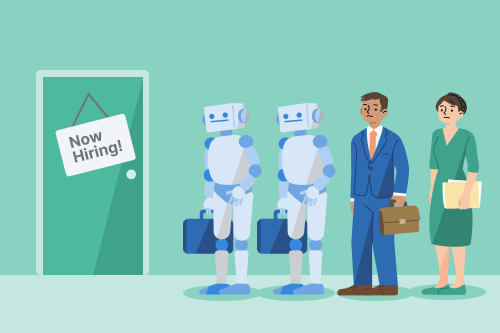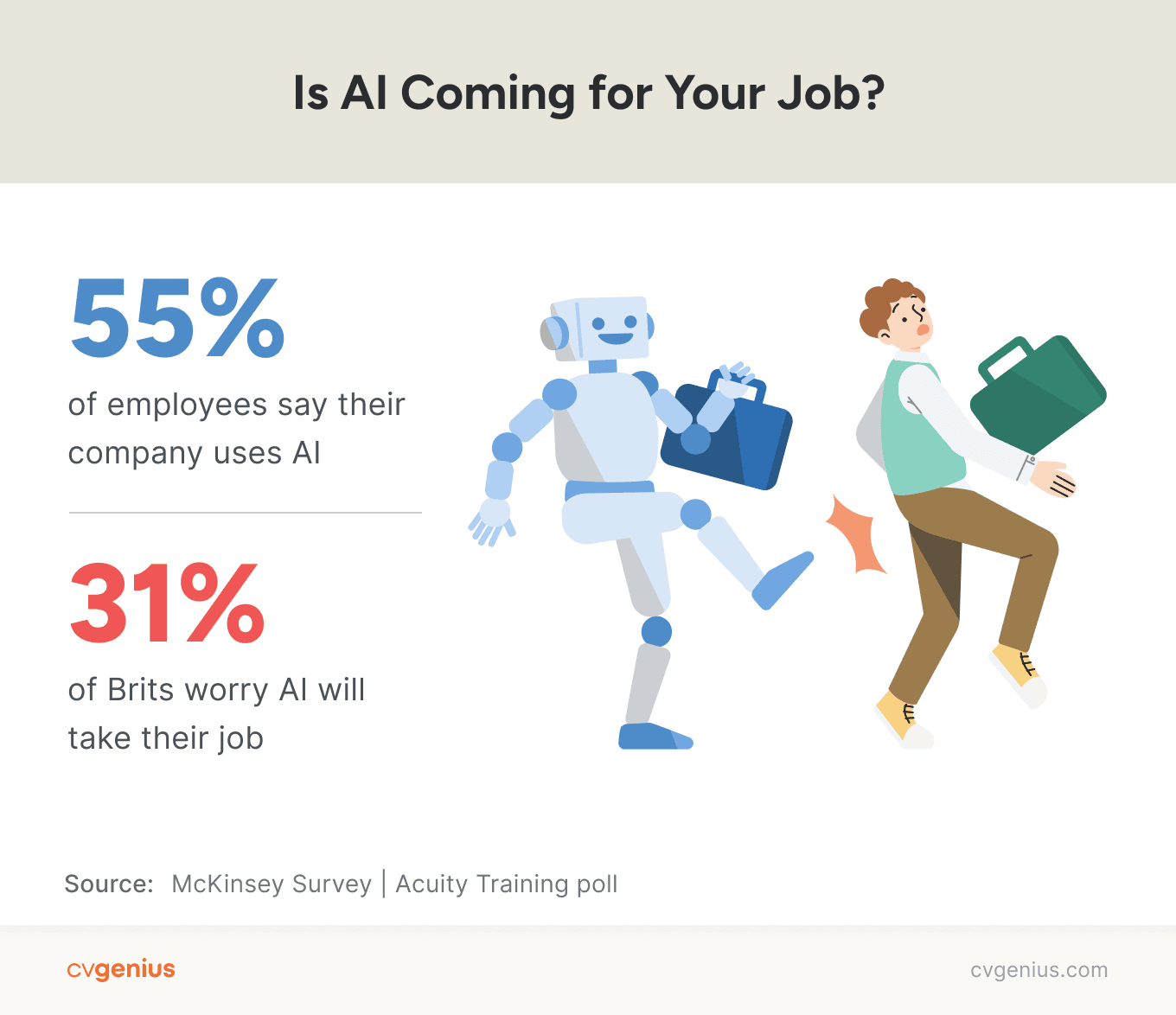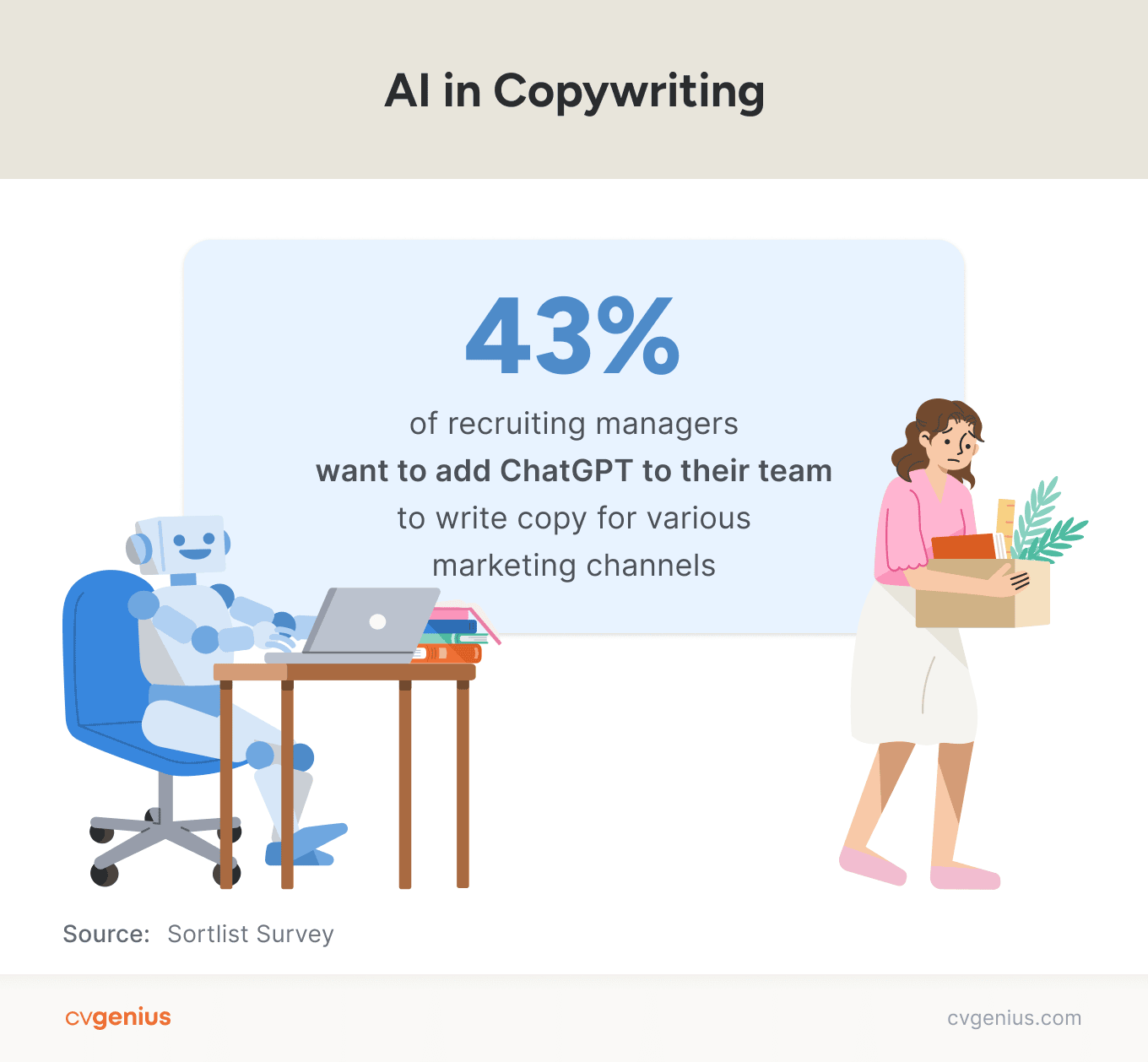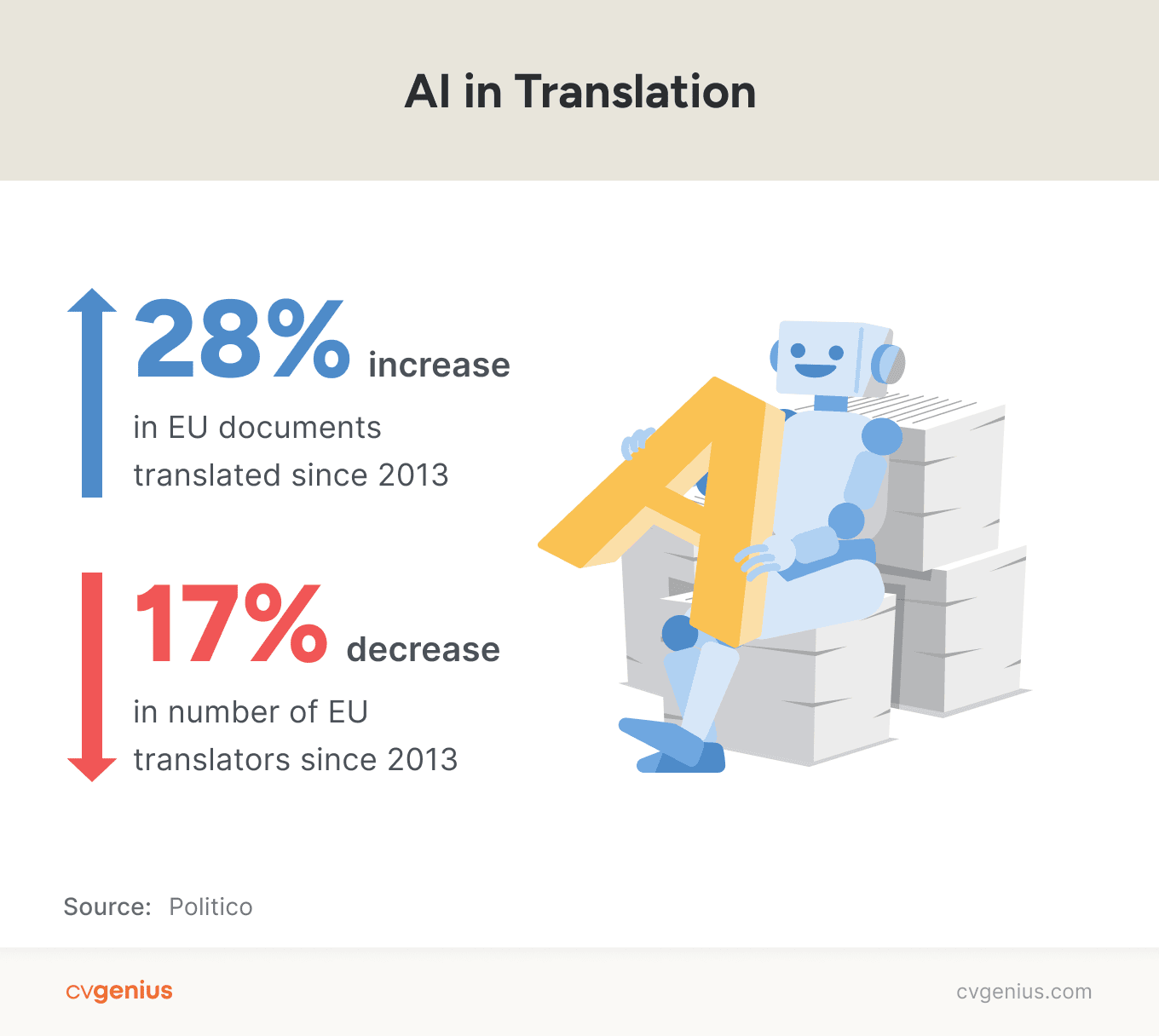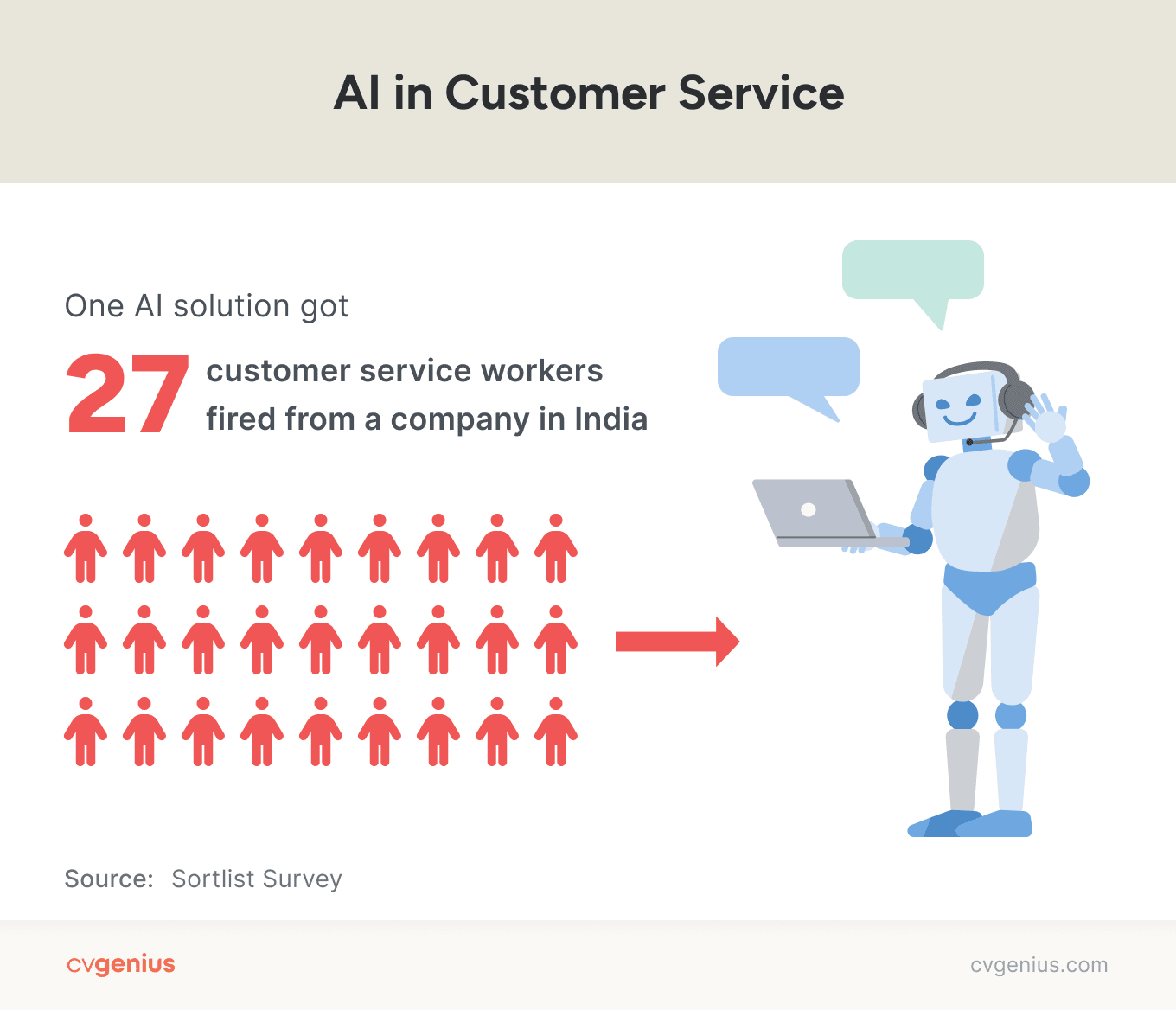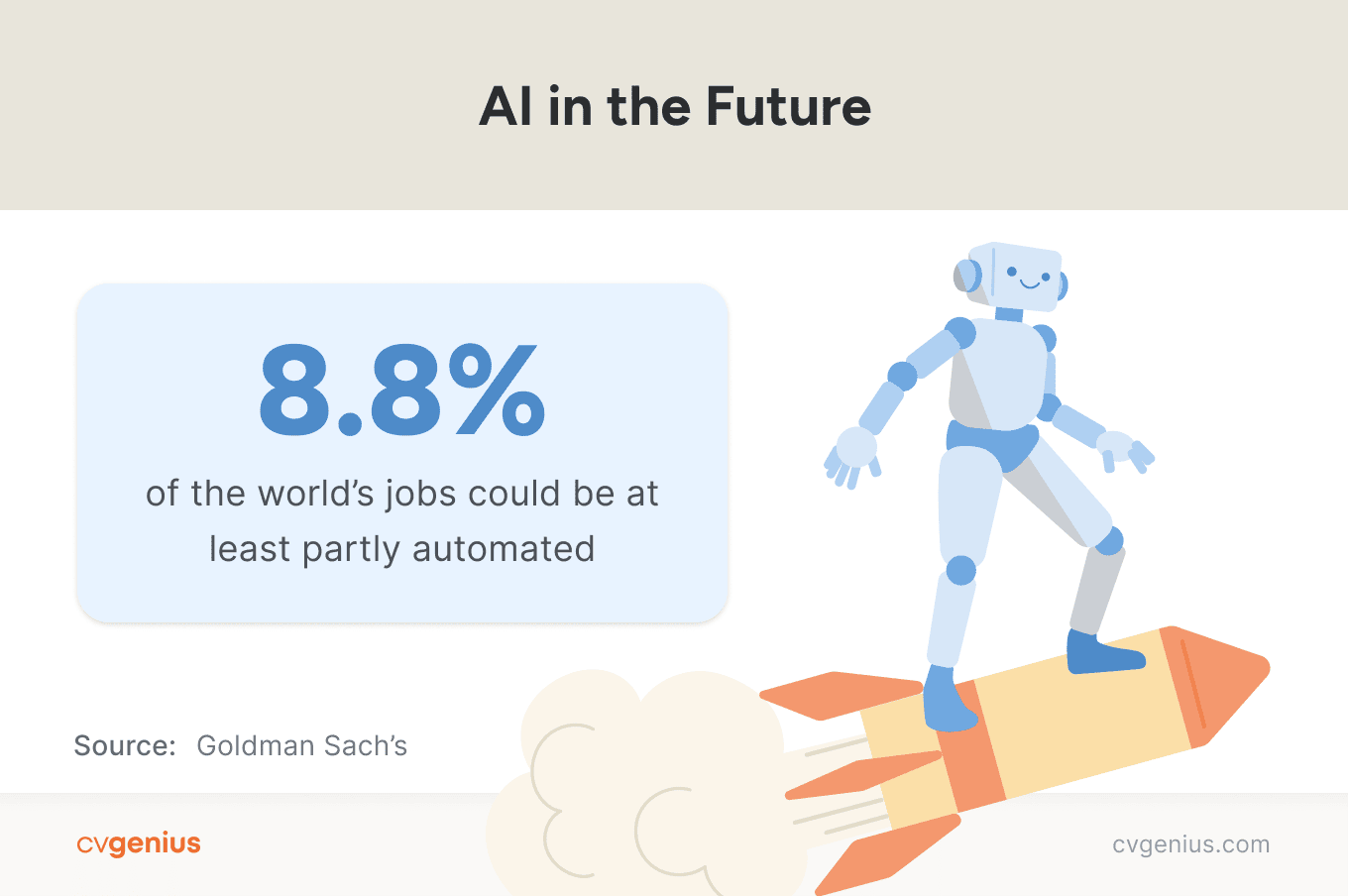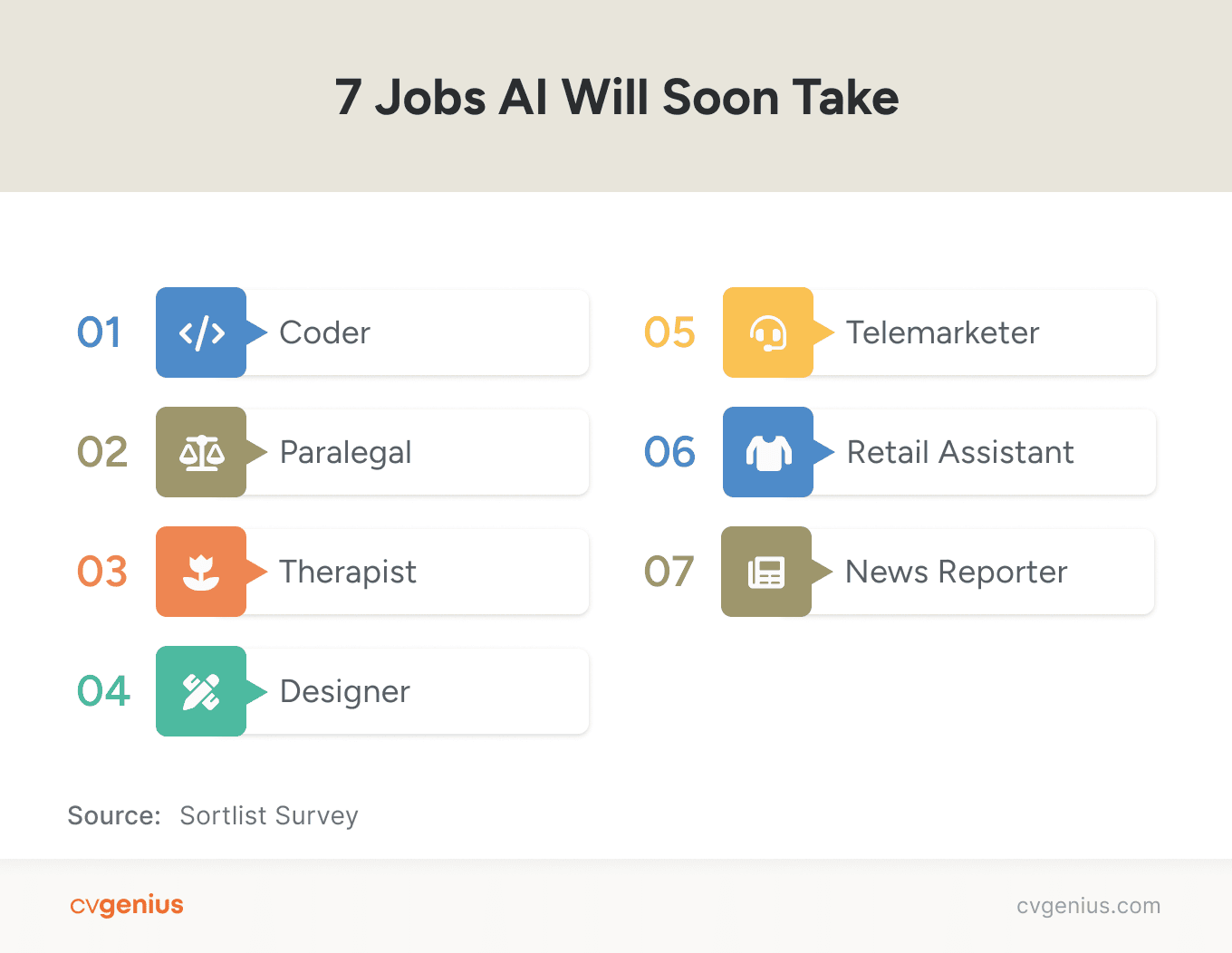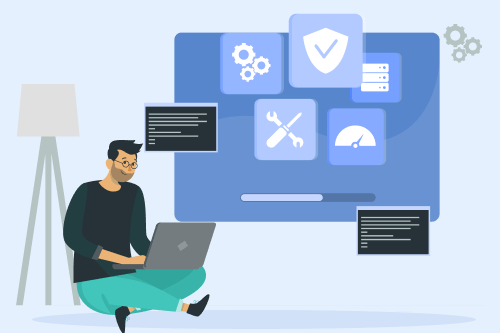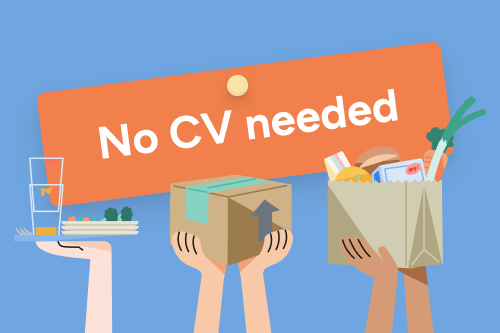Talking heads have long predicted that AI is coming for our jobs, but most people assumed that would be a problem for a future generation and went about their business as usual. Then, at the end of 2022, generative AI juggernaut ChatGPT blasted onto the world stage, holding our attention through all of 2023 by upending the way we work and how we perceive the future.
With efficiency-boosting applications in industries ranging from IT to manufacturing, ChatGPT rudely shoved us from our apathy into acute awareness that AI dominance isn’t a future fantasy — it’s a present reality.
And the human workforce is already shrinking as a result.
Per a Challenger, Gray & Christmas Inc. report, US employers cut nearly 4,000 jobs because of AI in May 2023, and 55% of respondents to a McKinsey survey said their company is already deploying AI. So no one should be surprised that 31%+ of British employees are concerned AI will replace them at their jobs, according to an Acuity Training poll.
Although AI has become a convenient excuse for employers when they lay off workers — blaming technological progress feels less harsh than calling out subpar performance — the reality is that AI has been steadily moving in on jobs traditionally done by humans.
Here are five jobs that AI took in 2023, followed by seven more that it’ll supplant in 2024:
1. Copywriter
Writing good copy is hard. You’ve likely received marketing emails so poorly written that they made you laugh out loud — right before binning them, ignoring the products and services they pitched.
Because the ability to put together words that engage with a target audience is essential to any business’s success, copywriting has long been a valuable skill that employers have paid well for.
But then generative AI (like ChatGPT) began producing high-quality writing that just needs a quick edit by a human before it’s ready to publish. Employers quickly capitalised, leveraging AI to save on human copywriter costs.
According to a Sortlist survey, ‘43% of employers want to hire ChatGPT as a marketing copywriter to create AI-generated content like a blog post, social media captions, etc.’
Though employers’ desire to hire ChatGPT doesn’t necessarily mean they’ll cut entire copywriting staffs, it does indicate that they’ll be able to trim them, and that they’ll be less likely to recruit more writers.
We’ve really started seeing AI’s impact in the freelance writing world. The work that companies would typically farm out to freelancers to save their full-time copywriters time is now often handed to ChatGPT or other AI writing platforms to complete in seconds (compared to the days or even weeks it takes a freelancing human), and then be edited by a full-time writer. The workflow remains the same, while speed dramatically increases.
Here are some anecdotal examples of AI pushing writers out of work:
- In June 2023, The Washington Post highlighted two freelance writers fired by their clients and replaced with ChatGPT.
- ‘If a robot can do your job for less, you better believe that’s exactly what’s going to happen’, wrote one copywriter in a July 2023 Business Insider article highlighting how ChatGPT forced her to take a job peddling product samples.
- Even here at CV Genius, we’ve shifted our freelancers to non-copywriting tasks as we’ve found using our in-house editors to heavily edit generative AI copy much more efficient and cost-effective than using freelancers.
2. Voice actor
Reading a script with the proper vocal inflections and expressiveness is a skill unique to some humans. Well, it was, anyway. AI is getting very close to speaking exactly like a human does.
AI voices are so good that they’re already taking work from voice actors. Companies like Speechelo and Speechify target marketers who make videos advertising products or explaining how to use them. These AI voices are touted as being nearly indistinguishable from human speakers and available at a fraction of the price of a human actor.
But even if AI didn’t sound quite as good as a person does, close is good enough for many employers. One actor profiled in Euronews noted that he lost overdubbing work to an AI that ‘had no richness, no nuance, no rhythm’ but was much cheaper than his services — potentially even free.
Voice actors aren’t the only people who make money with their vocal chords at risk of losing work to AI. Recently, a song featuring Drake and The Weeknd went viral, not because of the star power on the track but because AI generated the vocals.
3. Translator
If you’ve ever been in a linguistic jam and needed a translator, you probably didn’t look for a human interpreter. Instead, you likely reached for your phone to open your Google Translate app, which is powered by AI algorithms, or turned to ChatGPT for help.
Machine translation has existed as an assistant to human translators for a long time. But recently this AI has gone from assistant to taking jobs away from humans trusted with translating formal documents.
For example, AI technology enabled the EU to reduce its translation staff by 17% in the last 10 years, even while the number of documents needing translation rose by 28% over the same period, per Politico.
Elsewhere, companies are using AI to translate all types of content. In August 2023, tech blog Gizmodo axed its Spanish editors in favour of an AI translator, and a professor at the University of Massachusetts Amherst in the US is developing AI for translating literature.
Human translators are taking a stand against AI, but the money backs machine translation, an industry projected to have a 16.4% compound annual growth rate (CAGR) by 2027.
4. Police officer
In October 2023, New York City rolled out (literally) a robot beat officer. NYC mayor Eric Adams’ pitch to New Yorkers centred around the fact that the K5 robot will only cost taxpayers $9 per hour, compared to the average $30–47 per hour a police officer makes, per Glassdoor.
And while the K5’s bulbous design presents a friendly appearance, the possible next wave of New York City Police Department’s beat bots — vicious-looking robot dogs — are a jarring reminder of China’s dystopian COVID lockdown enforcement drones deployed in 2022.
But it’s not just New York that’s testing out robocops in 2023. Singapore introduced police robots to patrol the Changi Airport in June. The police force plans to use them on the streets of Singapore as well.
5. Customer service worker
Good customer service requires a personal connection between customer and agent, so there’s no way an impersonal AI tool could replace human customer service agents, right?
Wrong.
A recent Forbes article outlines how AI customer service solutions can optimise service quality while reducing the need for human agents. For example, chatbots are popular AI tools that companies use to reduce their customer service agents’ workloads. But when that workload is reduced, it also means fewer roles for humans.
In extreme cases, chatbots eliminate human workers altogether — like when an e-commerce employer in India replaced 27 customer service agents with a single ChatGPT-driven bot.
Even in-person customer service jobs aren’t safe from AI. Robots are already replacing baristas around the world, at places like Botbar in New York and Rovii Coffee in Taipei.
And you can expect to see even fewer staff on hand at your favourite shops, as the self-service kiosk industry’s CAGR is expected to be 12.61% by 2027.
7 jobs most likely to be automated in 2024 (and beyond)
AI demonstrated great potential for replacing humans in 2023, and it shows no signs of slowing its rapid progress. A Goldman Sachs report says 300 million roles could be at least partially automated by AI — a whopping 8.8% of the world’s jobs.
So which jobs will be automated next? Here are seven of the roles most likely to be taken by AI starting in 2024:
- Coder: ChatGPT has access to massive code datasets and is already completing difficult coding challenges, and Amazon’s CodeWhisperer is optimising the development cycle.
- Paralegal: Harvard Law School recently outlined how AI can help with legal research and document drafting, and ChatGPT itself says it can do a paralegal’s job.
- Therapist: Microsoft is developing a therapy app with AI that can ‘build a “memory” of the user, their lives, and their emotional triggers’.
- Designer: Anyone can use generative AI to produce creative images, and Adobe’s Firefly app has some designers feeling less secure in their jobs.
- Telemarketer: Will Robots Take My Job says there’s a 100% chance that AI will take telemarketing jobs as the industry is expected to decline 18.2% by 2031.
- Retail assistant: Per Statista, UK retail businesses will use technology to reduce cashier positions by 46% and bookkeeping roles by 49%.
- News reporter: A major German tabloid plans to replace employees with AI, while Sports Illustrated was recently accused of publishing AI articles and other sports sites have beta-tested generating game recaps using AI. An IBM executive even envisions live event coverage by AI.
Be sure AI won’t put you out of work
While AI is seriously shaking up the job market, it does bring with it some exciting progress. For instance, Goldman Sachs research indicates AI could boost the global GDP by 7% in the next decade.
And there are steps you can take to ensure robots won’t make you redundant at work. Here are a few ways you can beat the bots:
Remember to keep your CV and cover letter up to date to reflect your upskilling, so you can quickly apply for internal and external job opportunities. The most convenient way to ensure your application documents are always ready to go is to use a good CV maker and a cover letter builder that write and format your content in minutes.
As a refreshing change of pace, these AI-powered tools are designed to help you future-proof your career rather than compete with you for employment.
Build My Future-Proof Cover Letter Now
About CV Genius
CV Genius is the go-to resource for UK job seekers of all industries and experience levels.
The site features powerful CV and cover letter builders, a diverse collection of free industry-specific resources like cover letter examples and CV templates, and guides on how to write a perfect CV and cover letter. CV Genius has been featured in multiple renowned publications, such as the BBC, HR.com, MSN, Forbes, and Glassdoor.
With its team of career advisors and HR specialists, CV Genius can help anyone make an effective job application and earn more interviews.
For media queries or concerns, please contact us.
